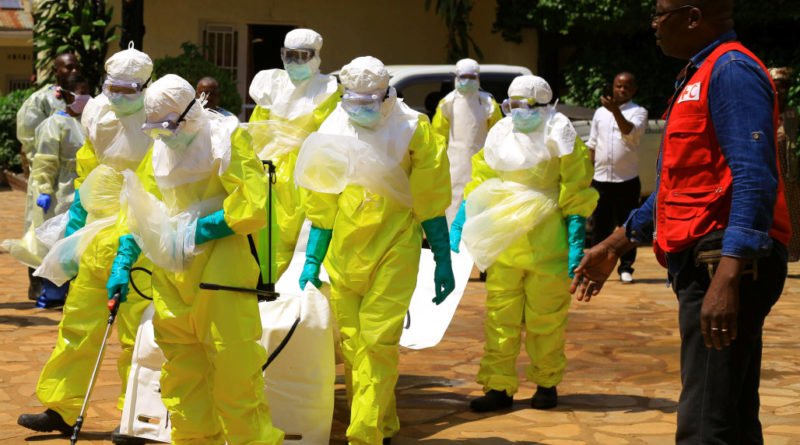Political Violence May Worsen Ebola Outbreak in DRC, Says World Health Organization
5,847 total views, 1 views today
The Democratic Republic of Congo (DRC) is currently in the middle of an Ebola epidemic, the seventh largest in history. And according to the World Health Organization (WHO), it may actually spiral out of control.
While an estimated 100 people have died and 150 people been infected so far in the North Kivu north-eastern province of DRC, the WHO stated in a press conference that a “perfect storm” of variables could further worsen the scenario.
Although new cases reported weekly have reduced to 10 (previously 40), a spate of politically-related incidents has destabilized the country, relegating health officials to the periphery and hampering progress.
The Ebola virus causes a type of hemorrhagic fever which is easily transmitted through bodily fluids, and it needs strict quarantining, management and surveillance to ensure that its spread is curbed. Recent rise in misinformation and insecurity has limited the ability of qualified medical personnel to combat the outbreak, thus increasing the risk of spread of the disease.
WHO’s Emergency Response Chief, Dr. Peter Salama noted the increasing political unrest has prevented a lot of medical professionals from accessing Beni, a small town of under half a million people, currently in the eye of the Ebola storm.
The original three-month projection by WHO, expected to attain full containment may now be increased by many more months, especially if international and financial support isn’t improved.
“The rebel group, Allied Democratic Forces (ADF) on Saturday carried out the most vicious attack yet, killing 17 innocent civilians in the process,” Salama said. “Beni,” he continued, “has turned into a ville morte, which means dead city filled with public anguish and mourning. And this mourning has morphed into anger towards the DRC government who has absolutely fallen short of its ability to protect its own citizens, first from the internal violence, and also from the deadly Ebola outbreak.”
Speaking at a press briefing in Geneva, Salama also added, “As the days go on, if we do see unsafe burials that can’t be responded to, if we do see symptomatic people that can’t be accessed ― we can see this situation deteriorating really quickly.”
The upcoming December elections in DRC have seen local politicians use the ongoing unrest and Ebola outbreak to spin conspiracy theories, further heightening resistance and distrust amongst the locals. Most villagers see men decked in hazmat suits as harbingers of death, and since most of these health experts aren’t from the local community, distrust, and reluctance to cooperate has become more of a problem as well.
Thus, some people who fall ill refuse to seek treatment. Instead some retreat to the deeper parts of the forest to escape detection. This contributes greatly to the already established challenge of monitoring and surveillance.
DR Congo alone has been battling several public health challenges all year. In addition to this being the second Ebola outbreak this year, the country is also fighting a polio outbreak and Yellow Fever threats. Issues like uncontrollable population growth and migration patterns coupled with general political and economic upheaval certainly make for a not-too-pleasant prognosis for DRC. Except drastic measures are taken.

